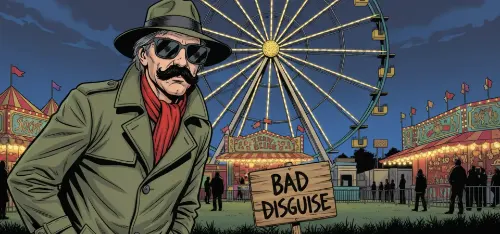Wade Robson: The Self-Proclaimed ‘Master of Deception’ and the Truth Behind It

March 22, 2020
There’s a common mix-up about Wade Robson and the phrase “a master of deception”, which he once used in his writing. Online, people often take it out of context, claiming it proves Robson was dishonest or made up his claims of sexual abuse by Michael Jackson. But when you look at the full story, it’s clear this wasn’t an admission of lying — it was something much deeper and more painful.
Robson used the phrase in a draft book he started in 2012, shortly after what he called a psychological breakdown. He was beginning to face memories of abuse from his childhood. This was a major turning point, as he started to deal with trauma he says had been buried for years due to denial and manipulation.
In 2016, during a legal interview with lawyers for Jackson’s estate, Robson was asked about the phrase. He confirmed he’d written it, but explained what he meant. He said “master of deception” didn’t mean he was generally dishonest. Instead, it referred to how Jackson had coached him from the age of seven to deny any abuse. Robson said he repeated the version of events Jackson had taught him — one where nothing wrong had happened.
This pattern, Robson explained, lasted for years. In Jackson’s 2005 criminal trial, Robson testified under oath that Jackson hadn’t abused him. But in his later deposition, he admitted that wasn’t true. He said he was emotionally and mentally unable to face what had happened, and that his earlier testimony was simply the story he’d been trained to tell since childhood.
Here’s a key part of that deposition:
Q. You refer to yourself as "a master of deception"; correct?
A. Here, yes, in the writing.
Q. Do you believe that you're a good liar?
A. I believe Michael Jackson taught me how to lie really well about the abuse that I suffered at his hands.
Q. And you did consistently, you're claiming now, lie about the abuse from when it started when you were 7 years old until May 8th, 2012; correct?
A. Say that one more time.
Q. Sure. You consistently lied, it's your claim now that you consistently lied about the abuse from the time you were 7 until May 8th, 2012; correct?
A. Yeah. I told the story that Michael taught me to tell until May 8th, 2012.
Q. And when people pressed you on that story or asked you questions, you consistently said that Michael had not abused you; correct?
A. Correct.
View the document in full: MJFacts.com
This part of Robson’s testimony is important. It shows that the phrase “master of deception” referred to years of repeating a false story — not because he wanted to lie, but because of what he describes as deep psychological control.
The manuscript where the phrase appeared was never published. Robson said he wrote it to help process his experiences, not to gain attention or support a legal case. In that context, the phrase was a painful reflection of how he felt shaped and silenced — not a boast or a confession.
Even so, many online — especially Jackson’s defenders — have used the phrase out of context to discredit Robson. They argue that anyone who calls themselves a “master of deception” can’t be trusted. But this ignores the emotional and psychological complexity behind the words. It overlooks Robson’s explanation and the circumstances in which he wrote them.
What’s often missed is how abuse affects children. Robson says he was taught to lie to protect Jackson, and that he absorbed this so deeply it became automatic. Only years later, after emotional turmoil and what he calls a breakdown, did those memories begin to surface. Whether people believe his account or not, the phrase has been twisted and used against him unfairly.
In its proper context, “master of deception” shows how much of Robson’s life was spent keeping up a false story. It’s not a proud statement — it’s a painful, ironic one, rooted in trauma, not deceit.
With permission, the following article was translated and enhanced from The Truth about Michael Jackson.





